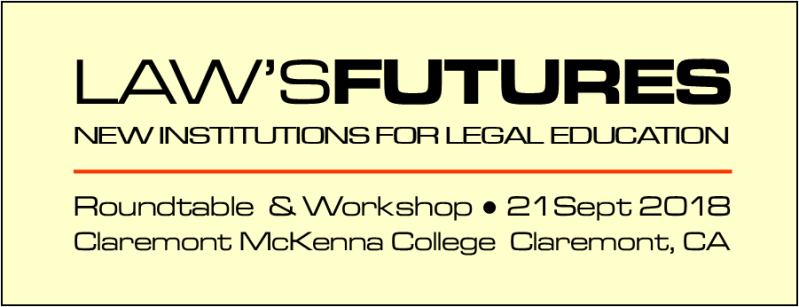The roundtable will begin Thursday evening, September 20, 2018, with a reception and dinner. Friday, September 21, 2018 will begin with continental breakfast, continue through a working lunch, and conclude by 3 pm.
Unless agreed otherwise, and in the interest of promoting free and open discussion, all sessions will held under the Chatham House Rule. “When a meeting, or part thereof, is held under the Chatham House Rule, participants are free to use the information received, but neither the identity nor the affiliation of the speaker(s), nor that of any other participant, may be revealed.”
Details
Download a printable version here
Thursday 20 Sept
Venue: Uno Tre Otto
114 N. Indian Hill Boulevard, Suite P
Claremont, California 91711
Business No.: (909) 624-1373
Located in the alley between 1st and 2nd Streets
[Attendees with dietary limitations or other food interests should advise Mike Madison at madison@pitt.edu.]
6:00 pm – 7:00 pm: Gather & drinks.
7:00 pm onward: Dinner & introductions.
Friday 21 Sept
Venue: Claremont McKenna College, Kravis Center
888 Columbia Avenue
Claremont, California
8:00 am – 8:30 am: Continental breakfast. Start your engines.
8:30 am – 10:00 am: [1] The scope and scale of the challenge: Goals and priorities.
Calls for the reform of legal education have percolated publicly for more than 100 years. Since the modern US law school was standardized following World War II, innovation and change have proceeded only in fits and starts, and mostly at the level of the individual school. Calls for change persist.
What is this group constituting itself to do, and why? If we are problem-solvers, then what problems should we solve? If we are reformers and renovators, what should be reformed and renovated? If we are designers and architects, what – and who – should we build?
Among those goals, what should our priorities be? In what respects are responses to those questions linked?
In light of present and future social needs, consider the distinctiveness of “law” as an academic and professional domain, of “lawyers,” of “the legal profession,” of “legal services” and “legal information,” and of “law professors” and other law teachers. Much of the contemporary content of those concepts followed from the efforts of Langdell and his successors to define “the law school” as a professional, university-based, post-graduate, rule- and principle-oriented, professorially-supervised institution. How much of that content should be re-thought, and new institutional arrangements created?
10:00 am – 10:30 am: Break. Refuel.
10:30 am – 12 noon: [2] The long game: Vision and outcomes.
How will we or others assess success, in the near term and over the long run? What should the world of legal education look like in 10 years? In 30 years? What role(s) should this group play in advancing and achieving that vision?
12 noon – 1:00 pm: [3] Working lunch: Change management.
Relative to this group’s goals and priorities, what are relevant opportunities? Barriers? Who are promising partners and allies? Who will resist? What low risk or low cost strategies and tactics for improvement are likely to succeed? Where, how, and with what resources? What higher risk or higher cost strategies and tactics should be on the group’s radar or in its inventory?
1:00 pm – 2:15 pm: [4] The distinctive voice of this group.
What resources and assets does this group have? What liabilities or drawbacks do we face? How should this group differentiate itself from other reform-oriented groups, including those directed or funded by the bar, regulators, and/or philanthropies?
In what respects should the group convene interests or stakeholders beyond leaders of the legal profession? In what respects should it advance ideas or proposals beyond calls for continued pluralism at the level of the individual law school or university? In what respects should it attempt to implement or execute new or reform initiatives? How should it balance possible “internal” engagement with contemporary legal education stakeholders and possible “external” engagement with stakeholders in higher education and society at large?
2:15 pm – 2:30 pm: Break. Refuel.
2:30 pm – 3:00 pm: [5] Next steps.
- Actionable items for this roundtable include:
- Establishing a leadership group to coordinate future work
- Establishing volunteer working groups around strategic priorities and initiatives
- Expanding the group and identifying partners and allies
- Developing a plan for future convenings
- Identifying communications protocols
- Mapping a timetable for future efforts
